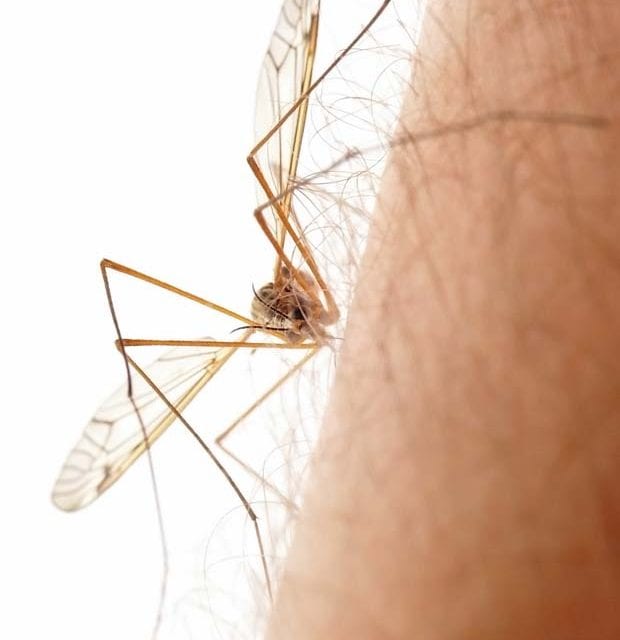The virus could be especially severe for people with compromised immune systems
 DAVID TAFFET | Senior Staff Writer
DAVID TAFFET | Senior Staff Writer
Taffet@dallasvoice.com
You would think that record rains this spring would have caused a record mosquito season, since mosquitoes breed in standing water. A record mosquito season could have, in turn, caused an increase in the number of cases of West Nile Virus.
Instead, the drought year of 2012 is when experts saw a spike in West Nile cases. This year, with torrential rains all spring, the virus appeared late.
Five deaths from West Nile Virus have been reported so far this year, mostly over the last two weeks. Two of those deaths were in Dallas County — one person lived west of White Rock Lake, the other in Irving. As of Monday, Aug. 31, there had been 12 West Nile cases reported in Dallas County.
The other three deaths were in El Paso, Kleberg County south of Corpus Christi and Tarrant County — the name of the city in Tarrant County where the deceased lived has not been disclosed.
While their identities were not revealed, all of the victims were older, with underlying health conditions, health department officials have said.
The number of cases reported this year is down, so far, from last year’s total of 379 cases of West Nile Virus in Texas, six of those cases resulting in deaths.
According to the Centers for Disease Control, West Nile is transmitted to humans by mosquitoes, which pick up the virus from the blood of infected birds. The virus is spread to humans only from mosquitoes, not from birds or from other humans.
There are no medications to treat West Nile or vaccines to prevent the virus.
There are two types of West Nile disease — West Nile fever and the more severe neuroinvasive form of the disease. Both are diagnosed through a blood test.
About one in five people infected with the virus develop a fever with other symptoms that can include headache, body aches, joint pains, vomiting, diarrhea and a rash. Most people with this type of West Nile recover completely, but the resulting fatigue and weakness can last for weeks or even months.
Less than 1 percent of those infected with the West Nile virus develop a serious neurological illness with symptoms including headache, high fever, neck stiffness, disorientation, coma, tremors, seizures or paralysis. This neuroinvasive form of the virus can be fatal when it causes encephalitis (inflammation of the brain) or meningitis (inflammation of the lining of the brain and spinal cord).
The disease was first found in this country in 1999 and has since been found in all 48 continental states.
The incubation period for West Nile is usually three to six days, but can be as long as two weeks. The period can be longer in people with immunodeficiency.
West Nile can be particularly deadly for people with underlying health issues such as HIV. Dr. John Carlo, executive director of AIDS Arms, said there haven’t been studies specifically of people with HIV and West Nile, but existing studies do show increased severity of West Nile in people with compromised immune systems, including people with diabetes, cancer, transplant patients and the elderly.
Carlo said anyone showing symptoms should get prompt medical attention.
“Get supportive care to limit the severity,” he said.
The best way to prevent West Nile is to prevent mosquitoes from breeding in your yard. Several years ago, Dallas found more infected mosquitoes in North Dallas where people were more likely to overwater their lawns than in neighborhoods in Oak Cliff or South Dallas.
The type of mosquitoes that carry West Nile breed in standing water, so empty bird baths and make sure gutters are clear.
“The ecology puts people living in urban areas at greater risk,” Carlo said.
In 2012, there was a huge spike in West Nile, and Carlo said we don’t know why. He said a number of environmental factors such as bird species diversity and amount of rainfall could affect mosquito populations.
But if rainfall is a factor, this year should have been a banner year for mosquitoes. Actually, Dallas County has trapped more mosquitoes than ever, but not the type that carries West Nile.
The heavy rains might have washed away those larva that tend to breed in small pools near houses. Not until Dallas dried out and homeowners began overwatering their lawns did the mosquitoes that carry West Nile begin to breed again.
••••••••••••••••••••••••••••••••••••••••
Preventing West Nile
Dallas County Health Department encourages people to follow the “4 Ds” for West Nile prevention:
• DEET: Use the insect repellant DEET when outside.
• DRESS in long, loose, light-colored clothing outside.
• DRAIN all standing water.
• DUSK & DAWN are when mosquitoes are most active. Limit outdoor activities at those times.
This article appeared in the Dallas Voice print edition September 4, 2015.


